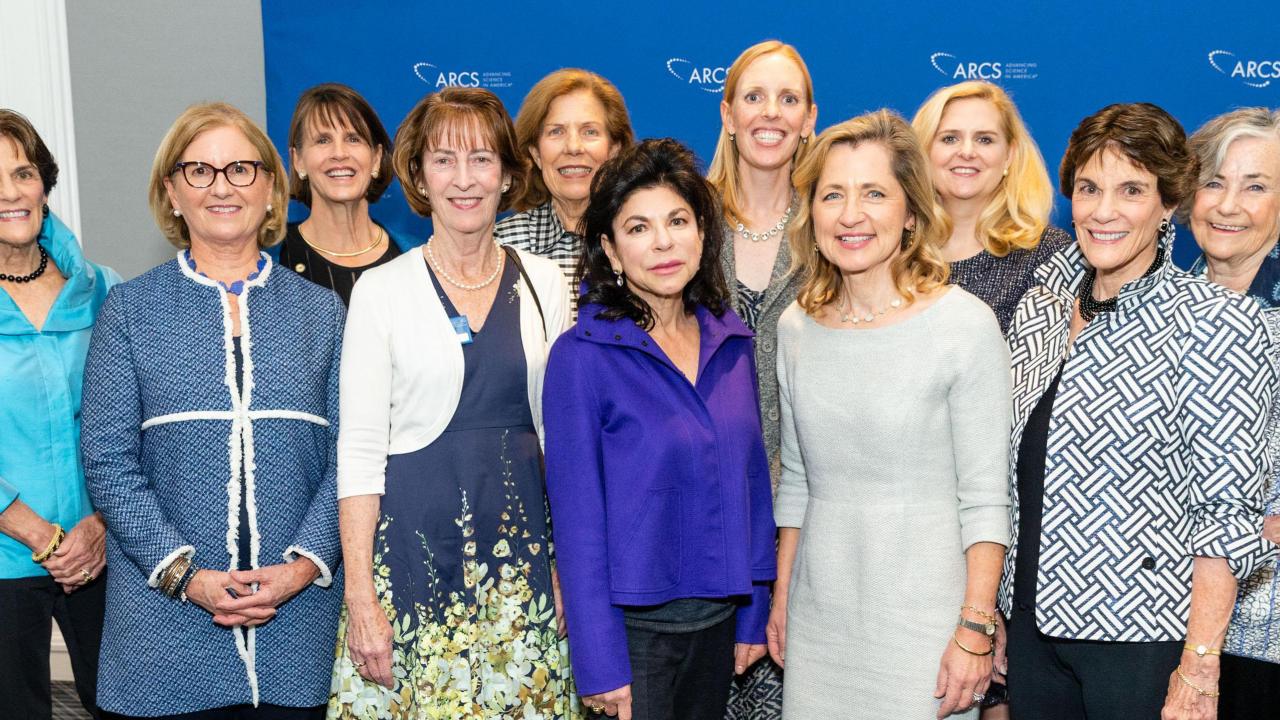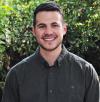
Celebrating 49 Years of Scientific Partnership with the ARCS Foundation Northern California Chapter
Pictured Above: ARCS® Foundation Northern California Chapter (NCC) is a dedicated group of Bay Area women focused on securing America’s leadership in science by granting awards to top scholars pursuing graduate studies in the sciences, technology, engineering, math and medical research at six Northern California universities.
Few foundations have had as much of a positive impact on graduate education at the University of California, Davis, as the ARCS® Foundation . With 15 chapters throughout the United States, the ARCS Foundation has collaborated with universities across the nation to fulfill their mission of fostering American scientific education, including a 49-year partnership between the ARCS Northern California Chapter and UC Davis. Students from approved graduate programs at UC Davis, such as Animal Behavior, Biomedical Engineering, Computer Science, and Transportation Technology & Policy, can be nominated by their Graduate program chairs to receive an $11,000 fellowship to further their studies and research. To date, ARCS Northern California Chapter has provided a stunning 3.3 million dollars in funding to hundreds of UC Davis students.
History of American Scientific Commitment
The ARCS Foundation was founded in 1958 after the Soviet Union launched Sputnik, accelerating an already deeply competitive space race between the Soviets and the United States. Aiming to fund the scientific education and research that would boost the United States' capacity to compete, ARCS would eventually expand into several more chapters, including the Northern California Chapter that the organization established in 1970.
Fully managed by a team of over 150 female staff and volunteers, the Northern California Chapter supports fresh-faced scientists of any demographic, investing in the medical, biotechnical, and energy sciences. They view these investments in young scientists not only as critical aspects to our country's economic success, but also as a crucial investment into the American future. By funding research projects in their infancy, when they are most in need of funds but least likely to receive government assistance, ARCS takes up the risk that other institutions are hesitant to absorb in order to promote science education and advancements that benefit our lives in innumerable ways.
2020-2021 ARCS Scholarship Recipients from UC Davis
Thanks to the ARCS Northern California Chapter, the following 18 graduates at UC Davis will receive a fellowship each for the furtherance of their scientific ambitions.

Anna Adhikari
Ph.D. in Molecular, Cellular, and Integrative Physiology
Anna's research interest is in translational science, which explores the connection between science and the people.

Charles Alex
Ph.D. in Integrative Pathobiology
Charles Alex is a veterinarian and specialist in veterinary anatomic pathology. His residency training included a special emphasis on diseases of zoo and wildlife species.

Peter Andrew
Ph.D. in Pharmacology and Toxicology
Peter’s research seeks to better understand the processes that drive epilepsy. He is focused on understanding the role of neuroinflammation in acquired epilepsy following acute intoxication with organophosphate pesticides.

Savannah Conlon
Ph.D. in Chemistry
Savannah's research focuses on elucidating fundamental features of the NEIL family of DNA repair enzymes.

Katherine Corn
Ph.D. in Population Biology
Katherine’s research integrates phylogenetic comparative methods, biomechanics, and her love of fish to explore the macroevolutionary consequences of major ecological transitions.

Kalyn Diederich
Ph.D. in Soils and Biogeochemistry
Kalyn’s dissertation work seeks to generate productivity data for perennial grain cropping systems in the Mediterranean climate of California.

Emmet Francis
Ph.D. in Biomedical Engineering
Emmet's research focuses on understanding the importance of bursts in intracellular calcium when white blood cells consume pathogens.

Hilary Green
Ph.D. in Agricultural and Environmental Chemistry
Hilary’s research interests stem from her passions for food and the environment through the lens of analytical chemistry.

Michael Huh
Ph.D. in Geology
Michael’s research interests include understanding the delivery of water and other gases during the accretion of the Earth, and the formation and composition of the Earth’s earliest atmosphere.

Zoe Kanavas
Ph.D. in Civil and Environmental Engineering
Zoe's research interests include groundwater contamination, machine learning implementations, and figuring out a novel way to combine the two.

Kelsey Lyberger
Ph.D. in Population Biology
Kelsey’s interests lie at the intersection of evolution and ecology. Her dissertation research integrates field and lab experiments with theoretical predictions to understand how humans are driving evolutionary change in freshwater ecosystems.

Alex McInturf
Ph.D. in Animal Behavior
Alex's research examines the link between physiology, behavior, and the environment in marine ecosystems. She explores this topic in sharks and salmon in order to improve conservation efforts for such threatened organisms.

Conary Meyer
Ph.D. in Biomedical Engineering
Conary’s research efforts are focused on the ex vivo synthesis of membrane proteins for structural determination, drug screening, and volatile small molecule sensing.

Amelia Munson
Ph.D. in Animal Behavior
Amelia's research is focused on how developmental experience affects responses to human-induced rapid environmental change.

Deborah Park
Ph.D. in Pharmacology and Toxicology
Deborah’s research interests include studying the molecular mechanisms of memory formation and the development of drug therapy for brain disorders.

Tyler Schlieder
Ph.D. in Geology
Tyler's research integrates a variety of geochemical and petrological techniques to probe the pre-eruptive thermal and physical evolution of active silicic volcanic systems including Mount St. Helens, USA, and the Taupo Volcanic Center, NZ.

Robert Tombari
Ph.D. in Chemistry
Robert’s research focuses on photopharmacology and the development of chemical tools to probe the mechanism of action of a number of neuromodulators and psychotropic drugs.

Max Vargas
Ph.D. in Neuroscience
Max’s research focuses on understanding the molecular mechanisms by which psyche
About Graduate Studies
Graduate Studies at UC Davis includes over 100 dynamic degree programs and a diverse and interactive student body from around the world. Known for our state-of-the-art research facilities, productive laboratories and progressive spirit – UC Davis offers collaborative and interdisciplinary curricula through graduate groups and designated emphasis options, bringing students and faculty of different academic disciplines together to address real-world challenges.
UC Davis graduate students and postdoctoral scholars become leaders in their fields: researchers, teachers, politicians, mentors and entrepreneurs. They go on to guide, define and impact change within our global community.
For information on Graduate Studies’ current strategic initiatives, visit the Graduate Studies strategic plan page.
